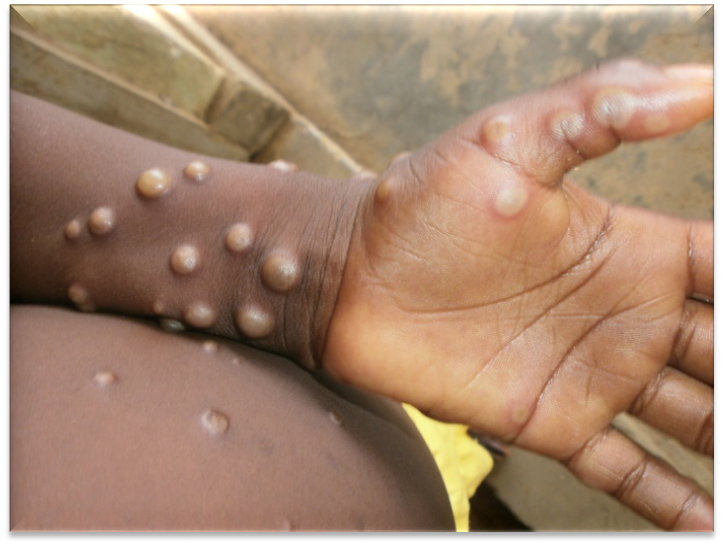
…Poor communication, not propaganda, fuelling vaccine distrust — Dr Casmir Ifeanyi
A growing wave of health disinformation believed to be orchestrated by Russia is threatening public health efforts across Africa, a recent report by the Africa Defense Forum (ADF) has warned.
Published on Monday by Eurasia Review, the ADF report revealed how Russia has for years exploited fears around pandemics and infectious diseases, such as mpox, Marburg, Ebola, and malaria, to deepen distrust in health systems and sow social unrest across the continent.
With its youthful population and rapid social media adoption, Africa has become a prime target for online propaganda and falsehoods disseminated through Kremlin-linked outlets, the publication said.
At the centre of this disinformation drive is The African Initiative, a digital news platform said to have strong ties to the Wagner mercenary group.
According to ADF, the Initiative is increasingly pushing health-related narratives designed to erode public trust in vaccines and government-led health interventions.
A researcher at the Africa Center for Strategic Studies said, Mark Duerksen,
“There are indications that the African Initiative is probing public health as something amenable to this kind of information warfare. They seem to have found another soft spot that they’re going to exploit. It’s really cynical because it’s going to make public health efforts more difficult on the continent. It’s going to make fewer people access care.”
Mpox, a viral disease that has led to several outbreaks in Central Africa, has been a major focus of these narratives. The Democratic Republic of the Congo (DRC) has been the hardest hit, recording the highest number of cases and deaths.
However, instead of addressing the crisis through factual health messaging, some online influencers with known pro-Russian leanings have been spreading conspiracy theories to their large followings.
One such figure is Egountchi Behanzin, a Togolese-born activist now based in France.
Speaking to his hundreds of thousands of followers, Behanzin falsely claimed that mpox was engineered in European military laboratories as a bioweapon to sterilise Congolese communities and enrich pharmaceutical companies.
Behanzin, formerly known as Sylvain Afoua, also made similar false claims about malaria vaccines in Burkina Faso and other West African countries.
According to Africa Confidential, which in 2023 published leaked documents from a former Wagner operative, Behanzin was one of several bloggers and influencers in West Africa allegedly on the payroll of Russian entities.
The newsletter also linked him to the now-banned Ligue de défense Noire Africaine (Black African Defence League), an organisation outlawed by French authorities in 2021 for inciting violent public disturbances.
Duerksen in his response to Voice of America said, “These claims are not isolated. They’re being amplified by pro-Russian influencers and platforms like the African Initiative. The intent is to spread confusion and weaken public confidence in health interventions.”
Experts warn that this campaign of falsehoods is not just damaging to health outcomes, it is also a direct attack on public institutions.
A disinformation analyst at the Foundation for Defense of Democracies, Ivana Stradner
noted that Russia’s tactics bear similarities to Cold War-era strategies.
Im her repsonse to a British newspaper The Telegraph, Stradner said, “The Kremlin knows how effective health disinformation can be. During the Cold War, the intention was to make HIV appear to be an ethnic weapon, targeting Africans. A very similar thing is happening today. They know it is an effective weapon because things related to disease trigger specific emotional responses, especially after COVID and especially when there is an ethnic context.”
Although the claims being circulated are baseless, they have gained traction across African social media channels, often repeating similar wording and imagery seen on Russian-backed platforms.
The European Union’s East Stratcom Task Force, which monitors Russian influence operations globally, has raised the alarm over the growing threat this poses to African nations.
“If disinformation is not addressed, vaccines alone will not stop disease in Africa and elsewhere,” the task force warned in a June 17 publication. “Mpox remains a significant public health crisis, as does widespread public distrust. Don’t be deceived.”
The warning comes as several African countries struggle with vaccine hesitancy and limited health infrastructure, especially in rural communities.
Experts are urging governments, civil society groups and the media to respond swiftly by amplifying fact-based public health messages and countering disinformation campaigns.
But the President of the Association of Medical Laboratory Scientists of Nigeria (AMLSN), Dr Casmir Ifeanyi, in a telephone interview with The Nation, faulted the narrative that blames Russia as the root of vaccine distrust in Africa, describing it as “oversimplified and unsupported by evidence.”
“There is no empirical or peer-reviewed study that links Russia to changes in health behaviour or the outbreak of mpox in Africa. We must not reduce the issue of vaccine hesitancy to foreign propaganda. That would ignore the real and pressing problem of scientific communication failure by both local and global health authorities.”
Dr Ifeanyi noted that while anti-vaccine sentiments exist, they are often fueled by poor community engagement, past traumas, and a lack of transparency.
“People have genuine questions about vaccines,” he said. “Africans are not passive recipients of information. We live in a knowledge age. Anyone can, and should, question public health interventions. It is the duty of authorities to clarify, not to shift blame.”